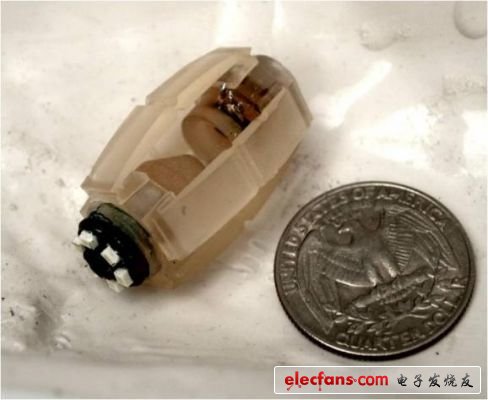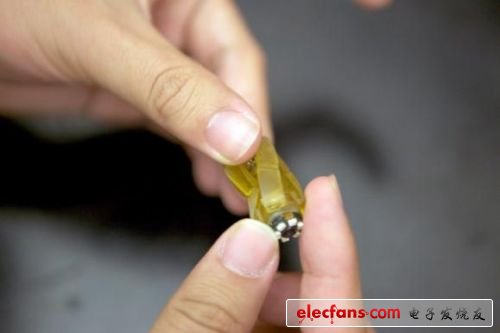Taking medicine and injections out! The magical American capsule robot
The Carnegie-Mellon University (CMU) Nanorobot Laboratory has received US $ 787,000 in funding from the National Institutes of Health, which will be used by CMU to develop sticky capsule robots that can be controlled in the human body. Capsule robots will replace invasive endoscope camera imaging, drug injection, and tissue sampling. Although the FDA approved the use of pill cameras in 2001, they have only been able to perform natural peristalsis and imaging through the human body.
"If you miss something, you can't go back. If you want to stay in a place for a period of time, you can't. If you want to do drug delivery or biopsy, there is no way to do so because we can't control the capsule." Nano MeTIn SitTI, the head of the robot laboratory and a professor of mechanical engineering, said so.

There are two magnets at the end of the capsule robot, allowing the doctor to move the robot outside the body with another magnet. Through careful manipulation, it may twist and spin in the patient's body, or even change its own shape. "You can put a drug in the middle chamber and inject the drug by changing the shape of the capsule." SitTI added, "This is due to its soft body made of flexible elastomers."

Currently, the team is experimenting with different prototypes in animals. Future versions will study how to add some frictional capsule surfaces-inspired by STIckyBot Gecko from Stanford University-by adding fine fibers strong enough to stick to the TV wall. They can also grab tissue samples and we can collect them once the capsule leaves the body.

Carnegie Mellon University ’s Nanorobot Laboratory has been devoted to the research of various capsule robots since 2005. They expected a working prototype to be completed next year, but said that the FDA approval process may take another decade.
Dc Servo Motor,Linear Servo Motor,High Torque Servo Motor,Servo Linear Actuator
Zhejiang Synmot Electrical Technology Co., Ltd , https://www.synmot-electrical.com